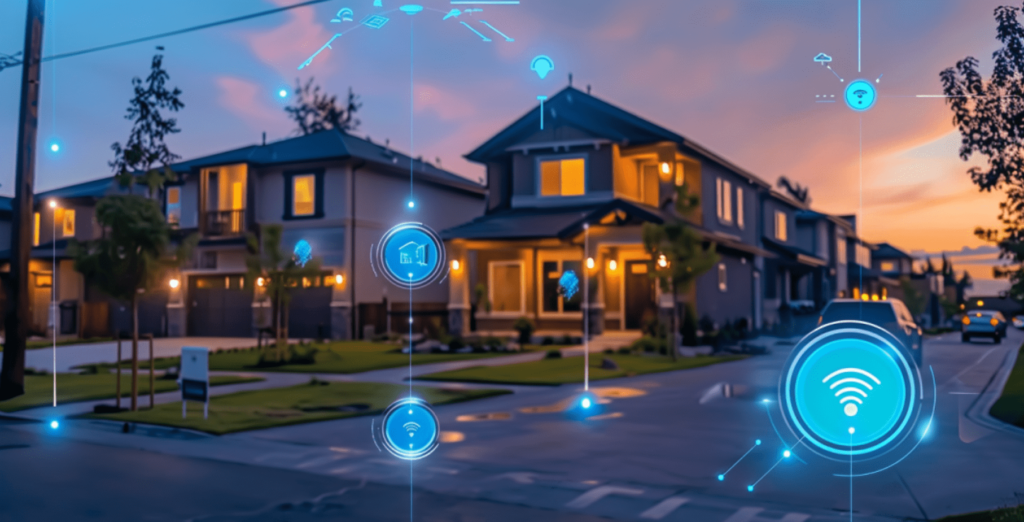Proper electrical maintenance plays a crucial role in optimizing and enhancing the performance of home automation systems. It ensures the smooth functioning of electrical components and helps prevent potential hazards. By addressing signs of damage promptly, electrical maintenance helps maintain the reliability and longevity of smart home automation systems. Regular preventative maintenance is the ability to avoid system failures, including those related to electrical devices. Maintenance also safeguards the system’s electrical wiring, protecting it from potential issues impacting its overall performance.
What Is The Importance Of Electrical Maintenance In Home Automation Systems?
Electrical maintenance plays a vital role in ensuring the smooth functioning of electrical components in home automation systems. Regularly inspecting these components can identify and address potential issues promptly. This helps maintain optimal performance and prevents system failures that could disrupt the functionality of the home automation system.
Ensuring The Smooth Functioning Of Electrical Components
Regular electrical maintenance is essential for properly functioning electrical components in home automation systems. Through regular inspections, electricians can identify any issues or signs of damage that may affect the performance of these electrical devices. By addressing these issues promptly, the electrical system can continue to operate efficiently and effectively, providing the desired automation features and functionalities.
Preventing Electrical Hazards Through Regular Inspection
Another crucial aspect of electrical maintenance in home automation systems is the prevention of electrical hazards. Regular inspections help identify potential risks such as faulty wiring, loose connections, or malfunctioning electrical components. By promptly addressing these hazards, electrical accidents, power surges, or short circuits that could damage the system and pose a safety risk to the home’s occupants can be prevented.
Signs Of Damage That Require Immediate Attention
Being aware of the signs of damage is essential for homeowners to ensure the timely maintenance of their home automation systems. If they notice flickering lights, sparks, unusual noises, or other irregularities, they must take immediate action and call professional technicians for inspection and maintenance. Ignoring these signs of damage could lead to system failures, increased repair costs, and potential safety hazards.

How Can Electrical Maintenance Enhance The Performance Of Home Automation Systems?
To enhance the performance of home automation systems, it is crucial to rely on professional electrical technicians for maintenance technician tasks. They possess the expertise and experience to identify and troubleshoot any electrical issues affecting the system’s performance.
Importance Of Professional Electrical Technicians
Regarding home automation systems, the role of professional electrical technicians cannot be overstated. Their specialized knowledge and skills allow them to conduct thorough inspections, diagnose potential problems, and provide the necessary repairs to ensure the system operates at its full potential. Entrusting electrical maintenance to professionals enables homeowners to have peace of mind knowing that their home automation system is in capable hands.
Role Of Maintenance In Preserving Electrical Safety Standards
Electrical safety is of utmost importance when it comes to home automation systems. Regular electrical maintenance plays a vital role in preserving and upholding safety standards. By adhering to safety regulations and carrying out regular inspections, potential hazards can be identified and addressed promptly. This proactive approach helps minimize the risk of electrical accidents or malfunctions, ensuring the well-being of the electrical system and its occupants.
Utilizing Preventive Maintenance To Avoid System Failures
One key benefit of preventive maintenance is the ability to avoid system failures, especially through electrical maintenance, including regular checks and updates. Conducting regular inspections and addressing potential issues in their early stages allows homeowners to prevent minor problems from escalating into major ones. This proactive approach helps to maintain the smooth operation and reliability of the home automation system, minimizing disruptions to daily life and reducing the need for costly repairs.
What Are The Key Components Of Electrical Maintenance For Home Automation Systems?
When it comes to optimizing the performance of home automation systems, electrical maintenance, carried out by qualified electricians, plays a crucial role. It involves inspecting and maintaining the wiring systems, understanding the role of HVAC systems, and replacing faulty electrical components.
Inspecting And Maintaining Wiring Systems
Regularly inspect the smart home wiring systems to ensure secure and damage-free electrical connections. Faulty wiring can lead to issues such as power surges, short circuits, or even electrical fires, compromising the overall performance of the home automation system. By conducting routine inspections, potential problems can be identified early on and addressed promptly.
Understanding The Role Of HVAC Systems In Electrical Maintenance
HVAC systems, including heating, ventilation, and air conditioning, are integral to electrical maintenance for home automation systems. Proper installation, regular maintenance, and servicing of these systems are crucial. Well-maintained HVAC systems contribute to efficient operation and help minimize potential electrical issues, ensuring optimal performance of the home automation system.
Replacing Faulty Electrical Components For Optimal Performance
Faulty electrical components, such as switches, outlets, or circuit breakers, can significantly impact the performance of a home automation system. Regular maintenance, guided by preventative maintenance training, includes identifying and replacing faulty electrical equipment to ensure smooth operation and prevent system malfunctions. At the expense of replacing these components as needed, homeowners can maintain the optimal performance of their home automation system, ensuring all electrical devices function effectively.
How Does Electrical Maintenance Contribute To The Longevity Of Home Automation Systems?
Electrical maintenance plays a vital role in ensuring the longevity of home automation systems. Implementing preventive measures, addressing electrical issues early, and complying with OSHA regulations enables homeowners to optimize the performance and lifespan of their systems. Additionally, predictive maintenance strategies focused on electrical equipment can be utilized to ensure efficient upkeep and enhance the electrical system’s overall performance. Let’s explore these essential aspects of electrical maintenance in more detail:
Preventive Measures To Troubleshoot And Address Electrical Issues Early
Regular electrical maintenance allows for the early detection and prompt troubleshooting of potential issues. Once homeowners conduct routine inspections and take proactive measures, they can prevent problems from escalating and causing significant damage to the home automation system. This preventive approach ensures that minor electrical issues are addressed promptly, minimizing the likelihood of future system failures and costly repairs.
Compliance With OSHA Regulations For Electrical Safety
Compliance with Occupational Safety and Health Administration (OSHA) regulations is crucial to ensure the safety of the home automation system and the house’s occupants, particularly from risks like electrical shock. Electrical maintenance ensures that all electrical components and wiring meet safety standards. By adhering to OSHA regulations, homeowners can minimize the risk of electrical accidents, fires, and other hazards, creating a safe environment for their families and ensuring the safety of electrical systems.
Implementing Predictive Maintenance Strategies For Efficient Upkeep
Predictive maintenance strategies involve regular inspections, routine testing, and ongoing monitoring to ensure efficient upkeep of the home automation system. Once homeowners proactively identify potential issues and perform necessary maintenance tasks, they can optimize the performance of their systems, ensuring there’s a lot of focus on electrical safety. Predictive maintenance helps prevent unexpected failures, improves energy efficiency, and prolongs the lifespan of the home automation system.
At the expense of prioritizing electrical maintenance, homeowners can enhance the longevity and performance of their home automation systems. By taking preventive measures, complying with safety regulations, and implementing predictive maintenance strategies, homeowners can optimize the functionality and efficiency of their systems, ensuring long-term satisfaction and peace of mind.
Conclusion
Proper electrical maintenance is essential for optimizing home automation systems’ performance and ensuring occupants’ safety. At the expense of proactively addressing electrical issues, following safety regulations, and implementing preventive and predictive maintenance strategies, you can enhance your automation systems’ functionality and longevity.
Prioritizing electrical maintenance enables homeowners to safeguard the system’s performance and protect against potential hazards. This includes enlisting the help of professional technicians who possess the expertise and experience to identify and troubleshoot electrical issues effectively.
Adhering to safety regulations and implementing regular inspections, routine testing, and ongoing monitoring allow homeowners to preserve electrical safety standards and detect potential problems early. This proactive approach enables timely troubleshooting and prevents system failures that could lead to costly repairs or replacements.
In summary, homeowners should prioritize electrical maintenance as an integral part of their home automation system upkeep. By doing so, they can optimize system performance, protect against potential hazards like electrical shock, and ensure their automated homes’ long-term functionality and safety.

